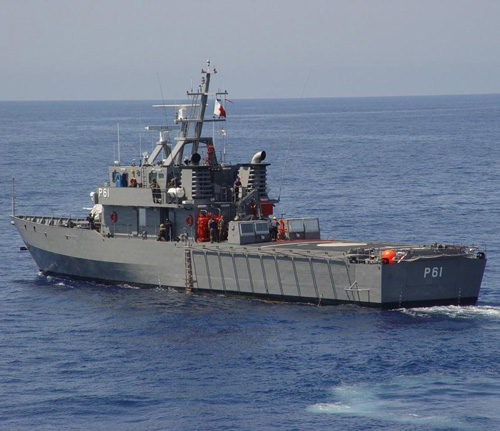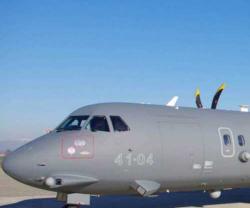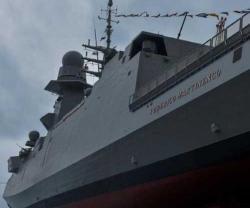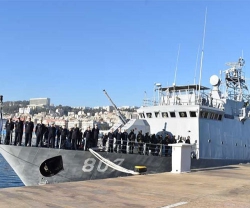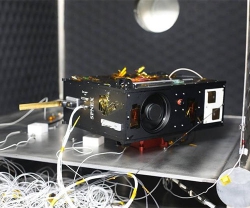Flinders Business School students headed to Italy for internships sealing a new partnership backed by a Memorandum of Understanding (MoU) between Fincantieri, one of the world’s largest shipbuilding groups, and Flinders University, based in Adelaide, Australia.
Within the Future Frigates - SEA 5000 program, which foresees the construction of nine frigates for the Royal Australian Navy, Fincantieri is one of three shipbuilders short‐listed by the Australian Government to participate in the Competitive Evaluation Process.
Its burgeoning partnership with Flinders - already a significant contributor to Australia’s naval capability through its Bachelor of Maritime Engineering, Bachelor of Engineering in Naval Architecture, and several research projects - puts the South Australian institution in a strong position to pick up even more lucrative research opportunities under the SEA 5000 program.
Dario Deste is the Chairman of Fincantieri Australia, the local company established by the Italian group in order to fully manage the important phase of the shipbuilder’s participation in the bid.
“Fincantieri is fully committed to the Future Frigates project and excited about our partnership with Flinders University. The program represents one of the most important naval surface shipbuilding projects in the world and Fincantieri is passionate about building strong partnerships in Australia,” Mr. Deste said.
Flinders University Vice-Chancellor Professor Colin Stirling said the partnership will see Flinders research expertise harnessed for practical impact.
“This MoU reflects how Flinders University’s powerful combination of innovation and naval expertise has been recognized by one of the world’s largest shipbuilding groups and number one by diversification and innovation,” Professor Stirling added.
Mr. Deste will meet the students during their internship activities at the company’s headquarters in Trieste and Genoa, where they will have the opportunity to see firsthand why Fincantieri is one of the world’s leading shipbuilders.
The MoU sets out terms for Fincantieri and Flinders to work together to promote academic and research cooperation, and the exchange of staff, students and information. The spirit of the initiative is intended to develop closer understanding and a durable friendship, as well as specific cooperation in the development and delivery of agreed research and education programs relating to naval shipbuilding.
Fincantieri is one of the world’s largest shipbuilding groups and number one by diversification and innovation. It is leader in cruise ship design and construction and a reference player in all high‐tech shipbuilding industry sectors, from naval to offshore vessels, high-complexity special vessels and ferries to mega-yachts, including ship repairs and conversions, systems and components production and after‐sales services.
Headquartered in Trieste (Italy), the Group has built more than 7,000 vessels in more than 230 years of maritime history. With 20 shipyards in 4 continents, Fincantieri is the leading Western shipbuilder. Among its major cruise operators are the Italian and the U.S. Navy, in addition to several foreign navies, and it is partner of some of the main European defense companies within supranational programs.
Located in Adelaide, the capital of South Australia, Flinders University ranks amongst the world’s top 2% of universities and equal 10th in Australia, with a reputation for innovative research and excellence in teaching and learning.
Flinders has 2,700 staff and 25,000 students, including some 4,000 international students from more than 100 countries.
Research strengths include defense, engineering, molecular science and technology, as well as water and environment.

